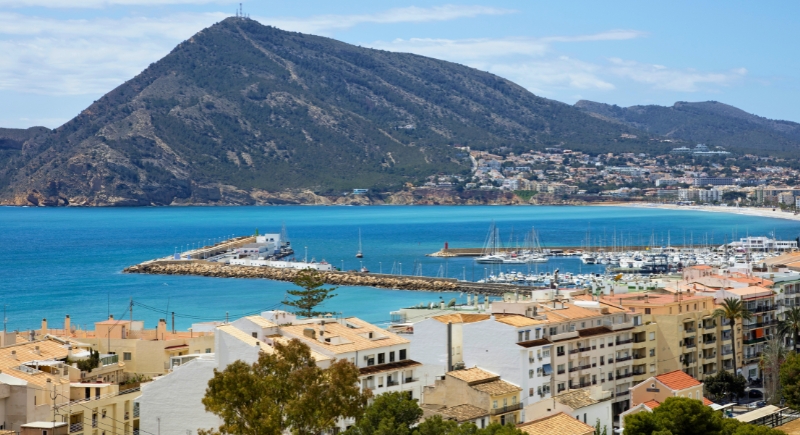Why More Americans Are Retiring in Spain (and Loving It)
Retiring abroad used to be a far-fetched dream, the kind of idea that stayed in the “maybe someday” category. Lately, however, a growing number of Americans have been skipping the Florida shuffle and heading to Spain. The country offers a mix of comfort and affordability rarely matched back home. Here’s why Spain keeps making the shortlist.
Affordability That Extends Beyond Rent

Credit: Canva
Living on a fixed income feels more manageable in Spain. Many retirees in Spain get by on $2,000 to $2,500 a month, and that includes rent, transport, and regular espresso breaks. Public transportation is cheap and reliable, groceries won’t ambush your wallet, and eating out doesn’t feel like a splurge.
An Application Process That’s Tedious but Fair

Credit: Getty Images
Spain’s Non-Lucrative Visa involves a checklist full of proof of income, health certificates, and multiple copies of just about everything. While the process can feel bureaucratic, it’s straightforward and doesn’t require a job offer or property investment. Most retirees say the effort pays off once they’re settled.
Healthcare That’s Efficient, Accessible, and Affordable

Credit: Canva
Spain ranks consistently high for healthcare quality, and it’s not limited to big cities. Both public and private systems offer short wait times, skilled professionals, and modern facilities. Private insurance typically runs between €100 and €200 a month. For American retirees, it’s a relief to get quality care without unpredictable billing.
Weather That Supports Year-Round Outdoor Living

Credit: pixelshot
Some towns in Andalusia clock more than 300 sunny days a year, but it’s not all scorched earth. Northern regions get a bit of rain and chill, which helps balance things out. Winter in Spain does not require snow boots or ice scrapers – just light jackets and open terraces.
Markets That Make Healthy Eating the Default

Credit: Getty Images
Spain’s food culture relies on fresh, unprocessed ingredients. Markets sell seasonal produce and seafood daily, and most neighborhoods have accessible stores within walking distance. Eating well is built into how and where people shop and cook.
Built-in Communities That Ease the Transition

Credit: Getty Images
Málaga, Valencia, and Alicante have communities where there’s comfort in not being the only newcomer. Expat groups organize everything from walking tours to wine nights, and retirees say finding friends takes weeks.
Urban Perks Without U.S. Price Tags

Credit: pexels
Madrid and Barcelona still deliver all the urban perks, including museums, hospitals, and concerts. But you won’t need six roommates or a 90-minute commute to afford them. Retirees live comfortably in central neighborhoods and still have enough left for tapas and weekend trips.
Safety That Supports Independent Living

Credit: Getty Images
Most of Spain’s urban and suburban areas report low crime, particularly compared to U.S. cities. Retirees feel safe walking alone, using public transportation, or running errands at night. It gives many a renewed sense of independence.
Coastal Living Without Luxury Pricing

Credit: Getty Images
You can rent an apartment within walking distance of the Mediterranean for less than what a typical home costs in much of suburban America. Towns along the Costa Blanca and Costa Cálida are dotted with beachfront properties that aren’t just for the wealthy.
A Tax Structure With Some Upsides

Credit: Getty Images
Yes, Spain taxes globally, but treaties with the U.S. mean you won’t be taxed twice on your pension. Property taxes are low, healthcare is part of the deal, and with a good accountant who understands expat rules, most retirees report that tax season doesn’t feel like a horror film.
Language Isn’t a Barrier in Many Places

Credit: Canva
In areas with big expat populations, it’s common to hear English in cafés, pharmacies, and even government offices. Most retirees say apps, friendly neighbors, and a willingness to mime go a long way. That said, picking up a little Spanish helps with small talk and better wine recommendations.
Freedom to Rent Before You Commit

Credit: Getty Images
You’re not required to buy a house to qualify for long-term residency. Spain’s Non-Lucrative Visa lets you rent for years, which gives you time to figure out if you prefer quiet villages, busy cities, or something in between. This way, you can experience what retiring in Spain is like before committing your savings to one place.
Cultural Richness Without the Travel Stress

Credit: pixabay
Spain’s compact geography means world-class experiences are never far away. Day trips to ancient towns, vineyards, or coastal villages are routine without being expensive vacations. Retirees enjoy relying on efficient and affordable high-speed trains and regional buses to get to their favorite destination.
Reliable Infrastructure That Doesn’t Require Upgrading

Credit: pexels
Internet, utilities, and mobile networks in Spain are reliable, with solid coverage in both cities and smaller towns. Banking is straightforward and most services work without hassle, even for newcomers. Retirees used to technical headaches elsewhere tend to settle in quickly here, since the essentials just work.
A Sense of Dignity in Daily Interactions

Credit: Canva
In Spain, being older isn’t treated like an inconvenience. There’s no age shuffle to the background. You’ll hear greetings, see deference in public spaces, and feel like your presence is acknowledged. Spanish culture tends to treat elders with respect in both public and private spaces.